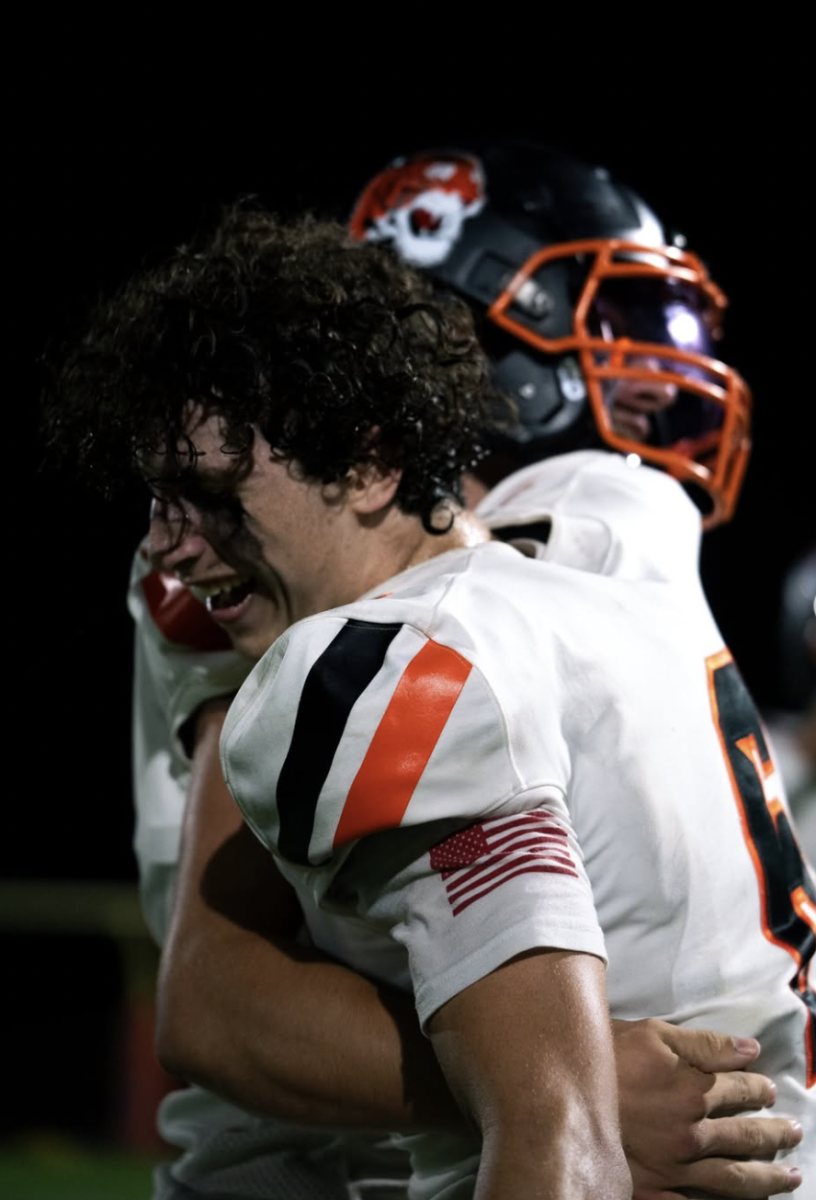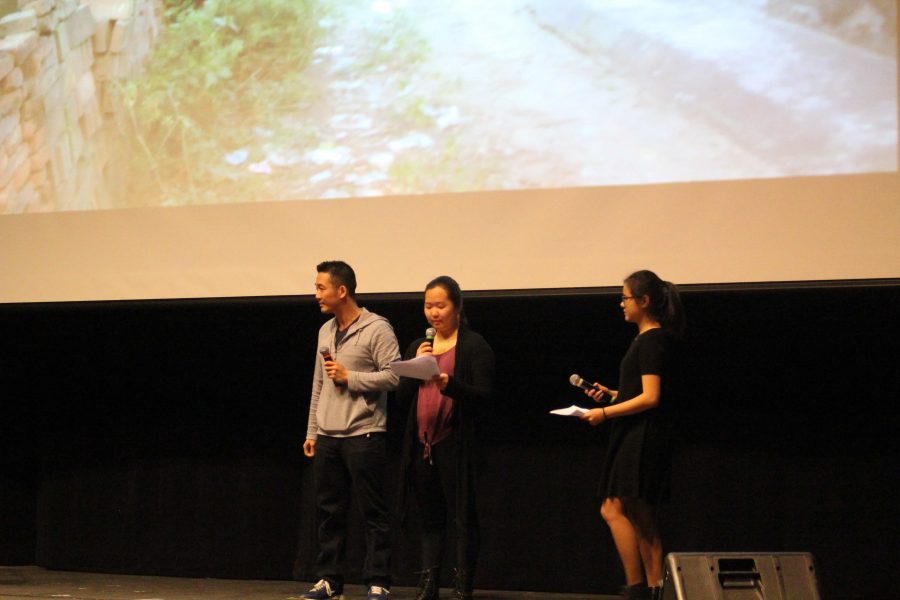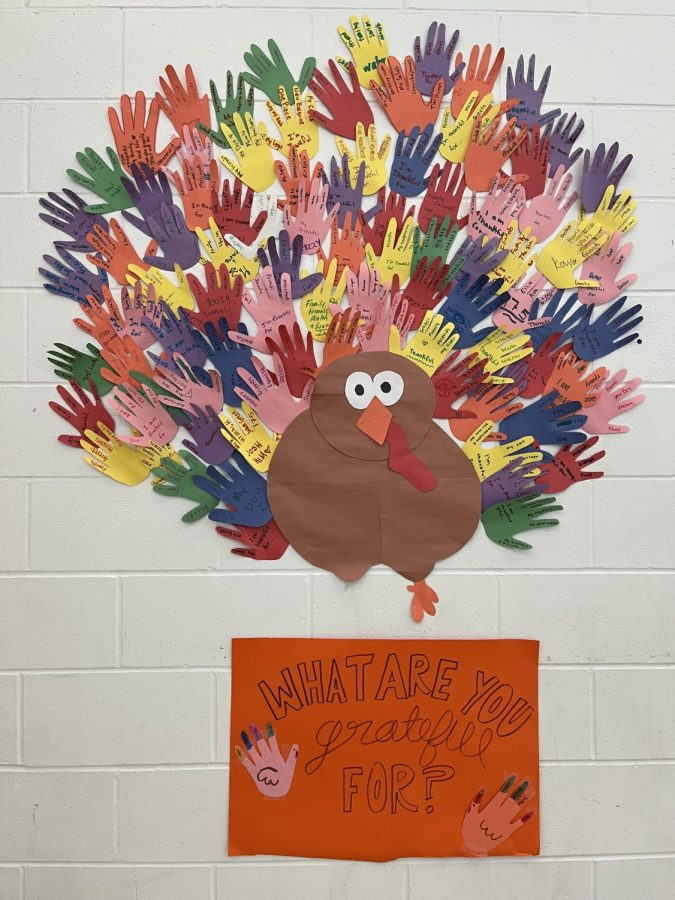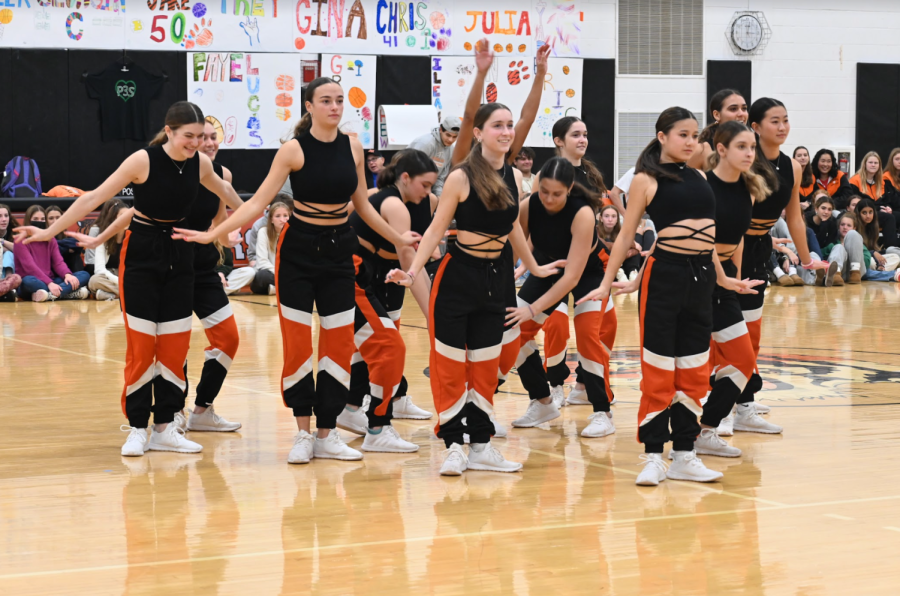A-Block
by Laura Schmidt-Hong
As part of Asian Culture Day, Chinese-American actor and producer Michael Tow spoke about Asian representation in the media Wednesday during a-block in the auditorium.
Tow, who has been acting for roughly 10 years, has appeared in the television series MacGyver and Master of None and starred in and directed the short film East of Hollywood. He explained that he started acting later in life because he never believed that he would succeed as an actor, “especially as an actor of Asian descent,” because during his childhood, Asians in the media were either “extremely stereotyped” or were portrayed by white actors.
Tow commented on the casting choices and the stereotypes of Asian characters in various films and television shows dating from between the 1950s and the 1970s, including Charlie Chan, Breakfast at Tiffany’s, The Teahouse of the August Moon, and Kung Fu.
He explained that “one of the stereotypes of Asian males is that they are very subservient, very nerdy,” and often “asexualized,” while Asian females are “hypersexualized.”
While discussing Breakfast at Tiffany’s, Tow discussed Mickey Rooney’s stereotyped role as Mr. Yunioshi, adding that “in some ways, it hurt watching it.”
He continued by noting that, while there are many more Asian actors on television and in movies today—for instance, on Fresh Off the Boat and Doctor Ken—stereotypes remain. There has been “a little improvement throughout the decades, but definitely still not enough,” he said.
Tow pointed to the television show Two Broke Girls, in which an Asian character is portrayed as “nerdy” and “asexualized,” as well as the movie Aloha, in which Emma Stone, a white actress, plays Alison Ng, a half-Asian woman. Tow explained, “This is yellowface happening in 2016.”
He also showed clips of East of Hollywood, a short film based loosely on his career as an actor. His character, Ken, is taught to “act Asian” when auditioning for films and television shows in order to fill stereotyped roles.
Next, in a discussion of major Asian-American issues of 2016, Tow commented on Doctor Strange, in which a white woman was cast to play a Tibetan monk, and a segment on The O’Reilly Factor in which Fox News correspondent Jesse Watters “used political events to make fun of Asians” in Chinatown.
Tow concluded by playing a video which he co-produced entitled “A-Woke,” a “Mannequin Challenge” that focuses on the Asian-American issues he discussed. He explained that to combat stereotypes and racism, “you just need a phone and a good idea.”
B-Block
by Nour Chahboun
Filmmaker Kenneth Eng, spoke about his personal cultural discovery during b-block yesterday in the auditorium.
Eng showed clips from his documentary and conducted a question and answer, accepting various questions from the audience members.
As an Asian-American filmmaker, Eng is able to explore his heritage through a genuine perspective in his documentaries.
Eng is a first generation American and focuses on his father’s escape from China’s cultural revolution to the U.S. in his documentaries.
In his presentation, he displayed clips from his documentary, “My Life in China,” which tells the story of his father’s immigration, and the drastic cultural change he underwent as he moved from China to the U.S.
The film began with a clip of his father’s life in Boston and a discussion regarding his regrets from moving to the U.S.
Eng’s movie offered a raw, authentic display of emotions and hardships that his dad had gone through. The clips gave an honest aspect and even showed family members crying tears as they opened up and explained their experiences with escaping China in pursuit of a life.
Eng told the audience that making the film had “given him a deeper appreciation” of what his parents had sacrificed for him.
“It was a film I had to make before I moved on with my life,” he added.
D-Block
By Tali Falk-Judson
History teacher Subheen Razzaqui spoke about the different ways South Asian Americans and Muslim Americans face discrimination in America during D block on Asian culture day.
“The number of hate crimes perpetrated against Muslims and people who are perceived as Muslim is at its highest since the aftermath of 9/11,” said Razzaqui.
Razzaqui then showed two small documentaries about discrimination towards South Asian Americans. The first was titled Raising Our Voices: South Asian Americans Address Hate and described multiple hate crimes that took place in the aftermath of 9/11. The second was An America for All of Us: Reflections and Action, which showed interviews of victims of hate crimes.
Razzaqui finished the presentation by showing videos of South Asian American and Muslim American comedians sharing their stories. Her first video was of Vidur Kapur, the second was Hasan Minhaj and the third was Maz Jobrani.
“South Asian Americans have had blame for terrorist attacks placed upon them,” said Razzaqui.
“Unfortunately, this blame has led to lashing out against South Asian American communities. This is a problem that has plagued America for a long time, and it’s only getting worse.”
F-Block
by Jonathan Cohen
A panel of students spoke about their experiences growing up as an Asian-American in public schools, during F-Block on Wednesday, in the auditorium.
A common theme during the block was identity. Many of the panelists talked about the struggle between their identity as an Asian versus their identity as an American and the need to assimilate to American culture.
“I refused to bring Asian food for lunch, I only brought American food,” said senior Isabella Sumner.
Panelists also discussed their comfort—or lack thereof—of their race. They had a variety of answers.
Almost every single panelist, mentioned that they were not able to identify as Asian or American completely.
Senior Emily Lee agreed, and added, “You are a perpetual foreigner.”
Many panelists concluded that they have become more comfortable with their Asian identities as they’ve grown older.
Senior Annabelle Tocco said, “parents and peers really help me to identify as Asian. Growing up in Newton, it is easier, even though I am different, I am special.”
G-block
By Rose Skylstad
Filipino-American artist Bren Bataclan presented a slide show with examples of his art, explaining his style and influences in the auditorium for Asian Culture Day this Wednesday during G-block. Bataclan also spoke about how he uses his art to spread happiness.
Born in the Philippines, Bataclan’s art is greatly influenced by Filipino culture. “I use the color scheme that I used to see back when I was a little kid in the Philippines,” he said. He described the vibrant, dynamic color of nature and culture in the Philippines as a key element to his “aesthetic.”
Bataclan’s art usually features colorful creatures with whimsical eyes inspired by anime, always with one eye larger than the other.
After explaining his style and influence, Bataclan went on to describe how he uses his art to spread a positive message. Though he does sell some of his art and has a gallery in Boston, Bataclan has a unique approach to giving away his work. Since 2003, Bataclan has left paintings in public areas, with a note that usually says, “this painting is yours if you promise to smile at random people more often.”
Bataclan’s goal of spreading positivity has taken him across the country and the world. “Since giving away my first painting, I’ve now given away over 2,500 paintings in about 70 different countries” and in all fifty states, said Bataclan. He has driven across the country six times, and when his friends and family are traveling, he provides them with paintings to give away.
In addition to painting smaller pieces, Bataclan has painted over 130 murals for schools, mostly in Massachusetts. Bataclan said he bases these murals off of the student’s own drawings and artwork at each school.
Bataclan next showed a clip from a Youtube series which he stars in called “Beanie and Bren.” The show features Bataclan, accompanied by a puppet named Beanie, and aims to demonstrate simply to children how to draw and paint different creatures and objects. As the clip played, he suggested anyone in the audience with a pen and paper draw along with his demonstration.
Referencing the Youtube series, Bataclan described himself as “a younger, Asian version of Mr. Rodgers.”
Asian Culture Day celebrates cultural differences, tackles prejudice
February 17, 2017
0
Donate to The Newtonite
More to Discover
















































